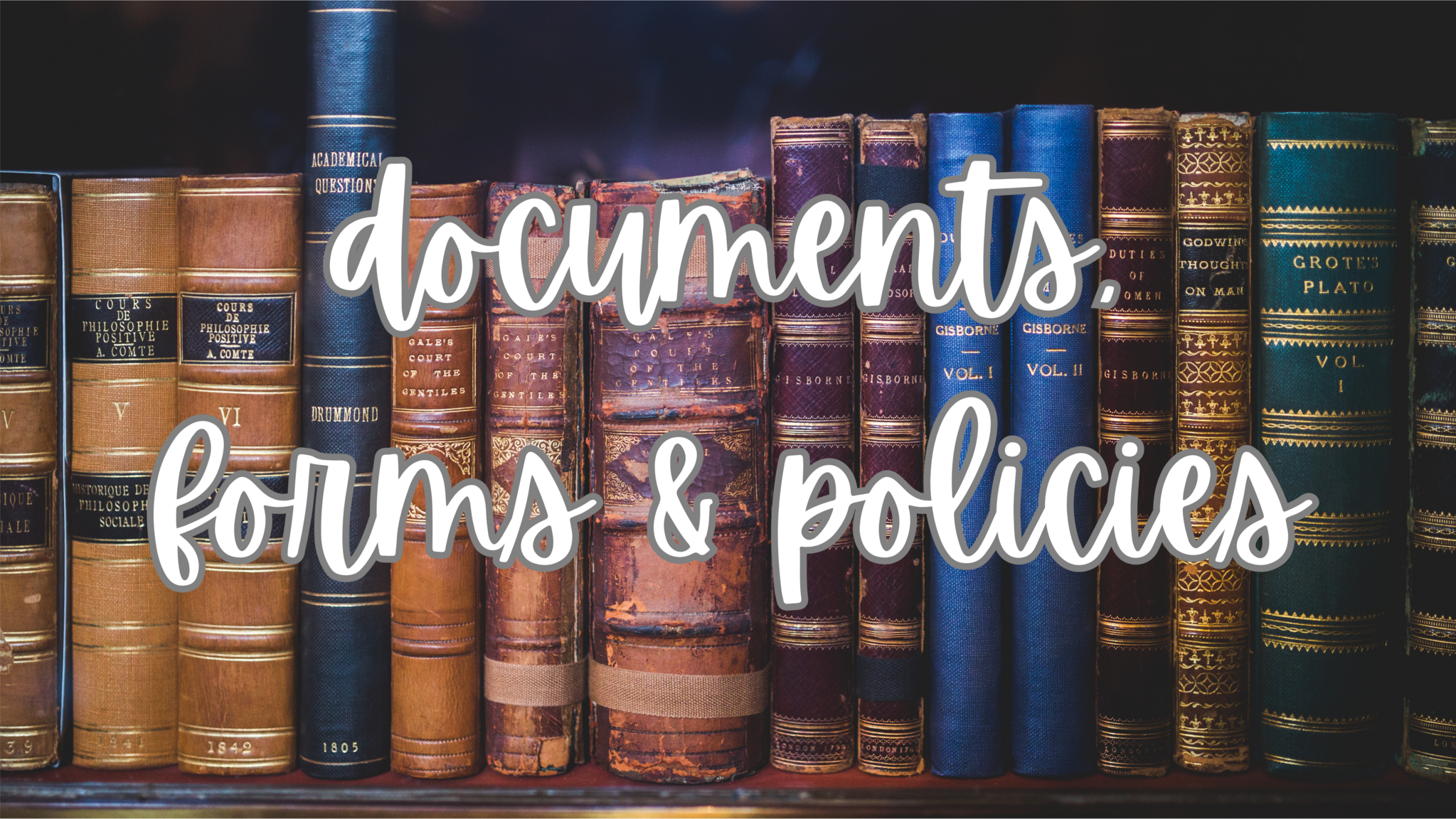POLICIES & DOCUMENTS
Links to Full/Printable Documents:
COLLECTION DEVELOPMENT POLICY
Table of Contents
-
Mission Statement
-
Purpose
-
Overview of Library
-
Philosophy and Scope of Collection
-
Selection Criteria
-
Supporting the curriculum
-
Division of budget
-
Special collection areas
-
Patron-driven acquisition
-
Weeding, withdrawal, and deaccession
-
-
Specialized Policies
Appendices
-
References
-
Request for Reconsideration of Materials form
Mission Statement
The Eastpointe Community Schools (ECS) library-media program provides students with equitable access to information and materials to support the school curriculum, innovative learning, and the school district’s mission: Eastpointe Community Schools, in partnership with families and community, will empower all students to achieve academic and personal success.
Purpose of the Collection Development Policy
The Collection Development Policy serves as a guide to creating, developing, and maintaining the six ECS library collections. In addition to offering rationale for the materials selected for the library, the Collection Development Policy ensures that the collection also meets the various needs of its patrons; and this document acknowledges the changing needs of its patrons over time and how to best serve them. Furthermore, these guidelines establish a protocol for the various responses that patrons and community members may have to materials selected for the collection.
Overview of Library
Eastpointe Community Schools is a suburban (urban-adjacent) school district serving grades Pre-K through 12thgrade. Of the nearly 2,400 students enrolled in ECS, nearly all come from low-income households with high rates of poverty, transiency, and housing insecurity. Not only do the libraries serve as a drop-in space for students, but it also hosts classes for scheduled book checkout at the elementary and middle school level, as well as an additional instructional space to high school classes. In addition to a library collection, the high school media center also houses two computer labs and an instructional space with flexible seating. In terms of the ethnic demographic breakdown of the school district, it is 77% African American, 12.7% white, 7.3% multiracial, 1.2% Asian, 0.7% Hispanic, and 0.5% Native American (niche.com, 2021).
Philosophy and Scope of Collection
The ECS libraries collect materials primarily to serve the interests and the curriculum of the staff and students. The materials selected for the collection reflect the needs of each building, with emphasis on materials appropriate for the ages and grade levels served. Additionally, collection materials are selected in support of the school curriculum and to reflect the diverse needs of a school district like Eastpointe.
The print collection held in the library is divided into subsections clearly labeled throughout the library and communicated to English classes during their library rotation. Nonfiction and reference materials are organized by the traditional Dewey Decimal Classification system and are offset from the fiction materials in separate shelving, with two exceptions: biographies and literature. To support and ease curriculum needs, biographies and memoirs, which would traditionally be shelved in the 900 class of Dewey, are separately labeled in a “Biographies” section. While poetry is included with the nonfiction classification, fictional literature that would traditionally fall under the 800 class of Dewey is shelved in the fiction section of the library. Fiction materials are organized alphabetically by the author’s last name.
In supporting the needs and interests of particular students, there are also three specialized areas of the collection: young adult novels at the middle school level, “everybody” books (easy readers) at the upper elementary schools, and graphic novels in all buildings. Due to an increased interest in books targeting a teenage audience, the Eastpointe Middle School library offers a growing young adult fiction section, which is also organized alphabetically by the author’s last name. The young adult novels are characterized as such by the certified teacher librarian and are offset as a means of compromise for parents or guardians who may personally deem some of the content inappropriate for their student(s). Graphic novels are continuously evolving, and their popularity among the school audience is growing (IAPWE, 2017), and so a separate section of graphic novels is shelved and organized by the author’s last name.
Selection Criteria
A variety of factors influence the selection of materials in the Seitz Media Center:
Supporting the Curriculum
Materials selected for the collection are in support of the curricula for the grade levels served by the library. Because ECS adheres to the Common Core State Standards (CCSS), certain standards are taken into consideration. The range of materials selected is reflective of standard ten for reading literature for grades six through twelve: “By the end of the year, read and comprehend literature, including stories, dramas, and poems, at the high end of [the grade level] text complexity band independently and proficiently” (Common Core State Standards Initiative, 2019). Additionally, standard nine for reading literature promotes reading across a range of genres.
Division of Budget
The yearly budget allocated to the ECS libraries will be, to the best of the facility’s ability, divided evenly among the nine months that the space is in operation. Not only does this guarantee funds throughout the year, but it also allows the selection of materials to remain current and relevant.
Special Collection Areas
Due to the diverse needs and specialized interests of the students served by the ECS libraries, special collections may be developed to highlight and embrace such patrons’ desires. Young adult and graphic novels are included in this criterion. Teachers may also request certain specialized materials that may fit into this criterion.
Patron-driven Acquisition
Students are the primary patrons of the ECS libraries, and their interests and requests are taken into consideration when requesting materials. An online form is available for submission on the library’s website, and submissions are reviewed and honored at the discretion of the certified teacher librarian. Paper forms are also available at the library’s circulation desk. As previously mentioned, teachers may also request specialized materials to support their various curricula.
Weeding, Withdrawal, and Deaccession
The weeding, withdrawal, and/or deaccession of materials from the collection are ultimately completed at the discretion of the certified teacher librarian, but are typically rationalized by one or more of the following criteria:
- Outdated or inaccurate information
- Irreparable damages
- Lack of circulation (especially if shelf space becomes constrained)
Specialized Policies
Gifts and Material Donations
Gifts and donations of books or other materials may be accepted and cataloged at the discretion of the library staff. Materials accepted but not immediately used by the library may be offered to the other school libraries in the district or the public library. Library staff retains authority to accept or reject gifts or donations.
Monetary Donations
Monetary donations are to be directed to the district financial office, accountants, and/or the school board for review, as they are responsible for school finances.
Patron Requests
Students and patrons may submit requests via an online form on the library website or a paper form held at the library circulation desk. Requests are reviewed by the certified teacher librarian, who has the authority to honor or reject requests. While the certified teacher librarian is responsible for scheduling the rotation of English classes, teachers may request the use of the space or the computer lab via an online calendar accessible by all school staff.
Patron Complaints
Patrons may submit complaints or appeals for reconsideration or the removal of materials via an online form available on the library website. A paper version of this is also available at the library circulation desk. A team that may consist of a certified media specialist, building administrator, general education teacher, support staff member, and parent will review complaints or requests and determine a decision that best reflects the guidelines of this collection development policy within 30 days of receipt. Following review, this team can choose to maintain the item of contention in circulation or refer that it be withdrawn from circulation, moved to deaccession, and formally removed from the library collection.
Appendix A: References
REFERENCES
American Asssociation for School Libraries. (2018). Shared foundations infographics. American Association of School Libraries. Retrieved from standards.aasl.org/project/foundations.
Common Core State Standards Initiative. (2019). English Language Arts Standards. Common Core State Standards Initiative. Retrieved from https://corestandards.org.
Eastpointe Community Schools. (2019). Retrieved from https://eastpointeschools.org.
IAPWE. (2017). Graphic Novels are Gaining in Popularity. International Association of Professional Writers and Editors. Retrieved from https://iapwe.org.
Niche. (2021). Eastpointe Community Schools. Niche. Retrieved from https://www.niche.com/k12/d/east-detroit-public-schools-mi.
School Librarians in the 21st Century. (2019). Library of Michigan. Retrieved from https://www.michigan.gov/sl21.
Request for Reconsideration of Materials









